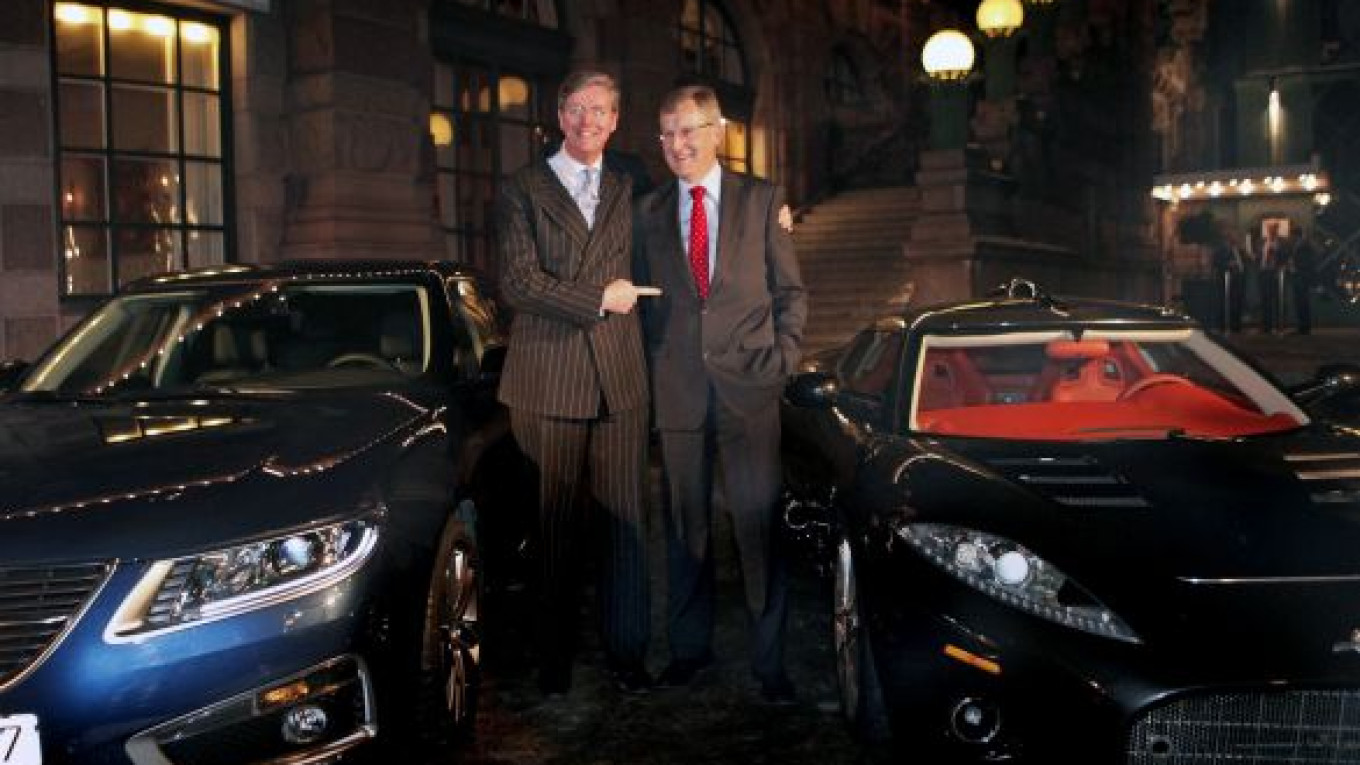Swedish carmaker Saab got a new lease on life after U.S. owner General Motors signed a binding agreement with Spyker — on condition that the tiny custom-built sports carmaker leave its Russian investor out of the equation.
Financing for the deal has not yet been approved by European Union regulators, but both companies announced the agreement confidently late Tuesday. Netherlands-based Spyker Cars will pay $74 million to GM for Saab, while the Swedish government will guarantee a loan of 400 million euros ($563 million) from the European Investment Bank. GM will also get preferred shares worth $326 million in the new company Saab Spyker Automobiles.
As part of the deal, Spyker CEO Victor Muller will purchase Russian investor Vladimir Antonov's 30 percent stake in Spyker through Tenaci Capital, a company that he fully owns, Spyker said in a statement.
Antonov, along with two other members of the Spyker supervisory board, will give up their seats after the deal is closed. In addition, Tenaci will repay 57 million euros that Spyker owes to "financial institutions, controlled directly or indirectly by Antonov," the statement said.
Negotiations between GM and Spyker had stretched out for weeks, and GM made it clear in its announcement of the deal that Antonov had been a major point of contention.
Restructuring the ownership without "the Russian investor" was "part of finding a sustainable solution for Saab. … I'll just leave it at that," John Smith, GM's vice president for corporate planning, said in a telephone conference call late Tuesday.
Antonov's Convers Group is "not directly" investing money into Spyker for the Saab deal, he added, declining to elaborate.
Smith previously expressed concerns about Russian involvement during negotiations with Magna and Sberbank over GM's Opel unit. He said he feared that GM would be "shipping valuable intellectual property to destinations unknown" with the Opel deal, which was never completed.
GM's fear is the same with Saab, that "up to date engineering, technology, architecture will be compulsively used or disused, or sold off by a Russian investor," said Ian Fletcher, an auto analyst with IHS Global Insight.
It was not clear how much Antonov would collect for his 4.6 million shares in Spyker, whose stock price has soared by 160 percent since the beginning of the year, including by 40 percent on Wednesday. Spyker also might be inclined to overpay for his stake because it was crucial for reaching a purchase agreement, Fletcher said.
In any case, Antonov is likely to be getting a good deal, he said. "He may be out at the right time — nobody knows how successful this is going to be," he said.
GM and Spyker are keeping mum regarding the circumstances of Antonov's buyout and whether his presence was the deal breaker in Spyker's first two bids, which GM turned away.
In the Spyker statement, CEO Muller extended "sincere gratitude to Vladimir Antonov for his formidable support during the past two years" that "allowed Spyker to get to the point that this transaction was made possible."
Antonov's Russian assets cover a handful of banks, including Investbank, which he controls through Convers Group together with his father, Alexander. Alexander Antonov was the target of an apparent contract murder last spring, surviving 18 gunshots on a Moscow street.
Antonov bought the Spyker stake in 2007, in the precrisis era of foreign vanity purchases by wealthy Russians, the most famous of which was Roman Abramovich's acquisition of Britain's Chelsea football team.
"Spyker cars are beautiful things, more like trinkets than sports cars, which may be what attracted him to invest," Fletcher said.
A spokeswoman at Investbank, where Vladimir Antonov is deputy head of the managing board, declined to connect a reporter with Antonov on Wednesday and referred all questions to Spyker.
A Message from The Moscow Times:
Dear readers,
We are facing unprecedented challenges. Russia's Prosecutor General's Office has designated The Moscow Times as an "undesirable" organization, criminalizing our work and putting our staff at risk of prosecution. This follows our earlier unjust labeling as a "foreign agent."
These actions are direct attempts to silence independent journalism in Russia. The authorities claim our work "discredits the decisions of the Russian leadership." We see things differently: we strive to provide accurate, unbiased reporting on Russia.
We, the journalists of The Moscow Times, refuse to be silenced. But to continue our work, we need your help.
Your support, no matter how small, makes a world of difference. If you can, please support us monthly starting from just $2. It's quick to set up, and every contribution makes a significant impact.
By supporting The Moscow Times, you're defending open, independent journalism in the face of repression. Thank you for standing with us.
Remind me later.


